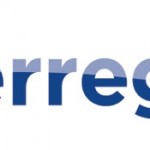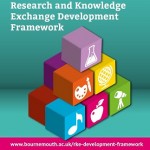Do you want to know more about our fourth call for project proposals?
Are you looking for project partners or do you have a project idea to share?
Would you like to network and build new contacts?

Then join the Interreg Europe team on Friday 13 April 2018 at 10am (Paris time) a two-hour online event dedicated to networking, partner search, and information about their new project call.
 During #europecooperates online, you will:
During #europecooperates online, you will:
- Hear the latest news about the fourth call and ask any questions you might have;
- Get tips for project development and learn about the already ongoing projects;
- Have a chance to network, find partners and share inspiration in an online chat.
The event is fully online, so you can participate from wherever you are. The event will be streamed live on the #europecooperates website as well as on Facebook.
Furthermore, you can start sharing your ideas and send them your questions already before the event. To help you connect with the other participants, they will open the online chat rooms on Wednesday 11 April, two days ahead of the live stream.
See the programme for more information, register now and get ready to network!
The Interreg Europe team is looking forward to seeing you online!
If you wish to apply for this call or other European funding calls, please contact your Faculty’s Research Facilitator – FMC & FM: Alex Pekalski or for FHSS and FST: Rachel Clarke
 Interreg Opportunities
Interreg Opportunities Interreg Visit Next Week: Last chance to sign up!
Interreg Visit Next Week: Last chance to sign up!










 ESRC Festival of Social Science 2025 – Reflecting back and looking ahead to 2026
ESRC Festival of Social Science 2025 – Reflecting back and looking ahead to 2026 3C Event: Research Culture, Community & Cookies – Tuesday 13 January 10-11am
3C Event: Research Culture, Community & Cookies – Tuesday 13 January 10-11am Dr. Chloe Casey on Sky News
Dr. Chloe Casey on Sky News Final Bournemouth University publication of 2025
Final Bournemouth University publication of 2025 On Christmas Day in the Morning…
On Christmas Day in the Morning… ECR Funding Open Call: Research Culture & Community Grant – Application Deadline Friday 12 December
ECR Funding Open Call: Research Culture & Community Grant – Application Deadline Friday 12 December MSCA Postdoctoral Fellowships 2025 Call
MSCA Postdoctoral Fellowships 2025 Call ERC Advanced Grant 2025 Webinar
ERC Advanced Grant 2025 Webinar Horizon Europe Work Programme 2025 Published
Horizon Europe Work Programme 2025 Published Update on UKRO services
Update on UKRO services European research project exploring use of ‘virtual twins’ to better manage metabolic associated fatty liver disease
European research project exploring use of ‘virtual twins’ to better manage metabolic associated fatty liver disease